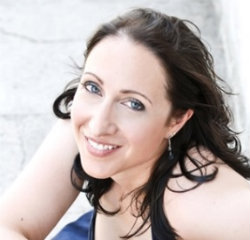How to Get a Book Published
I'm sometimes approached at book events or asked through email for advice on how to get a book published. Sometimes the person has an idea they want to sell. At other times they’ve got a finished manuscript. This was originally written to spare myself from having to craft a new reply every time I was asked, and especially as a response to well-meaning friends and family that nearly drove me mad with the question to end all questions: "So, have you found a publisher yet?"
1. It must first be finished. Unless you're very famous or a previously published author with decent book sales on a previous work, your work of fiction must be complete to get a publisher to look at it. Not half-way finished. Not, "Well, see, here's the general idea and I've written three chapters" finished. Finished, finished. "The End" finished.
One might, reasonably, wonder why it's necessary to complete a work first. Isn't a good idea worth the time to listen, and doesn't the publisher stand to make billions off your brilliance?
Quite simply: no.
Ideas are free. Ideas are everywhere. And so are unfinished works of fiction.
How many people do you know who have at one point said they were planning to write a book? How many have actually started inking that idea into reality? Perhaps you even have a friend, or know a friend of a friend, who has been working on putting a unique, creative, and amazing idea into writing for a few years now. Of those, how many do you know who've actually completed what they set out to write?
Exactly.
That's why a work of fiction has to be finished before anyone in traditional publishing will look at it.
* A little side note on the subject of ideas: Telling your author friend that you have a great idea for a book and that if he/she will write it, you'll split the money when it sells is about as logical as telling a house builder that you have a great idea for a house and if he/she will build it, you'll split the money when it sells.
2. Authors don't find publishers, agents find publishers. With very few exceptions, publishers do not accept un-agented manuscripts. This means that you or your writer friend can try all you, he, or she wants to find a publisher but it's probably not going to do any good.
To have a publisher take a look at your work, it must, for the most part, be submitted through an agent. Again, one might reasonably wonder why. It's not because people in the publishing industry are lazy, or because there's some agent-conspiracy to corner the publishing market.
Publishing houses have "agented only" policies because their acquisition editors work tight deadlines that don't allot time for reading manuscript submissions. Editors do need to find new material for their lists, but they don't get paid to read submissions they get paid to bring to market those that they've already acquired. Which means that they do much of their manuscript reading on their own limited time and have to narrow those options down to what's already been vetted to fit the criteria of what they and their publishing house is looking to publish.
The agent is the screening process: the guard at the gate. The agent doesn't get paid unless he or she can sell your book, and he or she won't agree to represent what s/he doesn't believe s/he can sell.
With only a fraction of the people who set out to write a book actually completing one, it almost boggles the mind to consider that the average agent receives hundreds of emails each week from authors seeking representation.
As you might imagine, with such an inundation it's not easy for a first-time author to stand apart from the masses. Agent rejections come aplenty and, no matter how nicely written, can be devastating. Securing agent representation is a tedious and time-consuming rite of passage that must, almost without exception, be endured on the road to publication.
Taylor Stevens is an award-winning and New York Times bestselling novelist who—by odds and expectations—should never have become either successful or published. Like many aspiring authors Stevens had no credentials or platform, and no direct route into the publishing world. But, unlike most, she was also limited by a life of cultural isolation and a sixth-grade education.
Born into an apocalyptic cult and raised in communes across the globe, Stevens grew up as a child laborer, cooking and cleaning for up to a hundred at a time, caring for younger commune children, or out on the streets begging on behalf of commune leaders. Books, movies, music, and pop-culture from the outside world were strictly forbidden, and she finally gained unlimited access to fiction after returning to the United States in her early thirties. Her books have since been published in over twenty languages, with The Informationist optioned for film by James Cameron’s production company, Lightstorm Entertainment.

|


